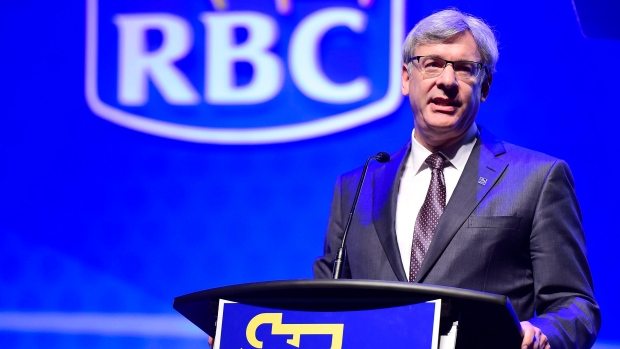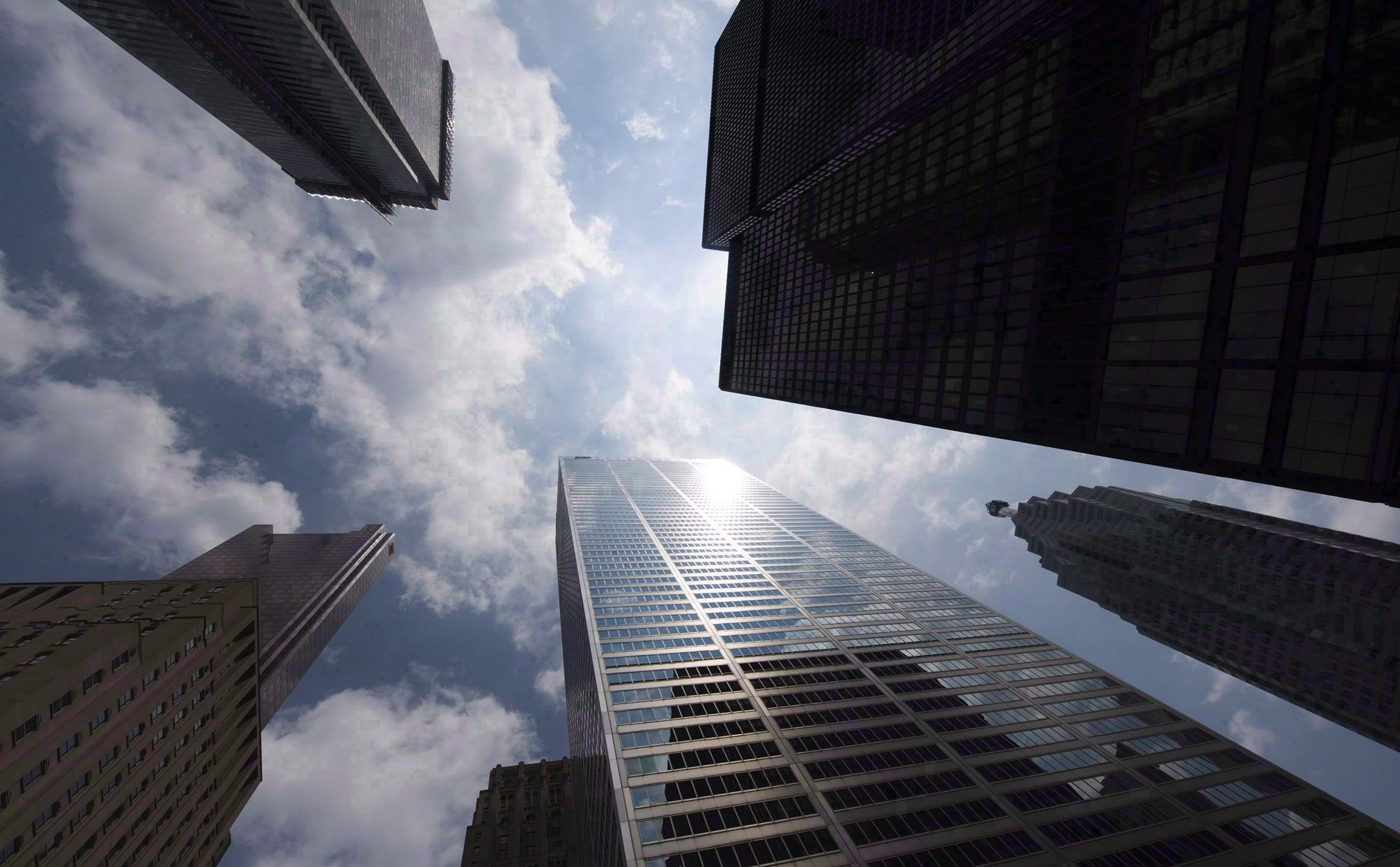Jan 9, 2018
RBC's McKay says odds NAFTA gets torn up 'increasing'
, Reuters

Royal Bank of Canada's Chief Executive Dave McKay said on Tuesday he believes there is now a greater chance that the North American Free Trade Agreement could be scrapped.
"I think the probabilities are increasing that you'll have some type of dynamic where there is an announcement of a scrapping of NAFTA," he said at a conference hosted by RBC in Toronto.
Canadian bankers have expressed concern about the progress of talks to rework the trade agreement and how renegotiations could hamper the ability of clients to do business with customers in the United States and Mexico.
McKay said he agreed with other business leaders and the Canadian government that no deal would be better than a bad deal.
HAVE YOUR SAY

What U.S. policy outcome will have the biggest impact on the fortunes of Canadian banks?
"We don't want to be stuck long-term with a deal that hurts our economy," he said at the 2018 Canadian Bank CEO Conference.
The bosses of Canada's seven biggest banks were all speaking at the event which covered themes such as technology and Canada's housing markets as well as the banks' international expansion plans and the potential impact of trade negotiations.
TAX CHARGES
The chief executives of RBC and Bank of Montreal (BMO.TO) said they are expecting first-quarter writedowns due to U.S. President Donald Trump's tax changes, but also significant tax savings on future earnings.
RBC’s McKay said at the industry conference that he expects a writedown of $150 million US, plus or minus 10 or 15 per cent, in the fiscal first quarter.
However, he said Canada's biggest bank by market capitalization is expecting an annual tax-positive benefit of $150 million US to $200 million US.
BMO CEO Darryl White confirmed during the conference the bank's prior guidance that it would reduce its net deferred tax asset by $400 million US, but said it also expects a positive economic impact of $100 million annually.
Tax changes signed by Trump late last year cut the corporate income tax rate to 21 per cent, from 35 per cent.
RBC and BMO's comments come after Toronto-Dominion bank yesterday said it expects its fiscal first-quarter results will be cut by roughly US$400 million, but the lower corporate rate is expected to have a "positive" effect on its future earnings.
AI, BLOCKCHAIN
McKay also said RBC, Canada's biggest bank by market value, is now spending $3 billion a year developing new technologies. The bank is one of the biggest Canadian investors in technology such as artificial intelligence and blockchain and has increased the proportion of its technology spending on innovation compared with maintaining existing systems.
Smaller rival Canadian Imperial Bank of Commerce's Chief Executive Victor Dodig said the bank was spending around $1 billion a year on technology, split roughly 50:50 between new technology and existing systems.
Bharat Masrani, chief executive of TD Bank Group, Canada's second biggest bank, declined to say how much his bank spent annually on technology. TD said on Tuesday it had bought Layer 6, a Toronto-based artificial intelligence firm, for an undisclosed sum.
Brian Porter, chief executive of Bank of Nova Scotia, said Canada's third biggest lender spent $3.1 billion on technology last year.
Dodig also said that CIBC was continuing to consider a possible stock market listing of its FirstCaribbean business in New York. Reuters reported last month that the bank was considering the move.
"In a market like New York, we've seen examples of other franchises that have listed there to the benefit of shareholders and to the benefit of those financial institutions and that's precisely why we're pursuing this," he said.
- with files from The Canadian Press
